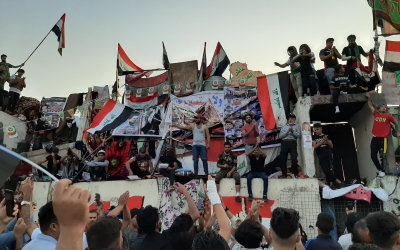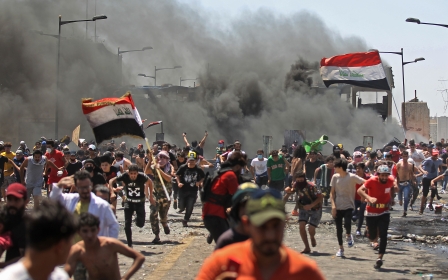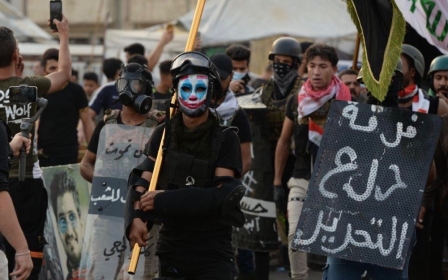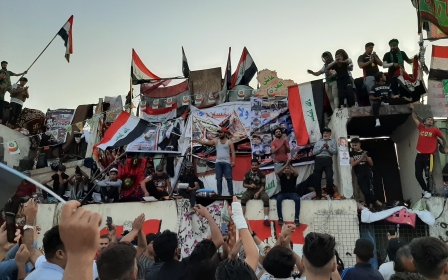Iraq: In first, four arrested over killing of anti-government protesters
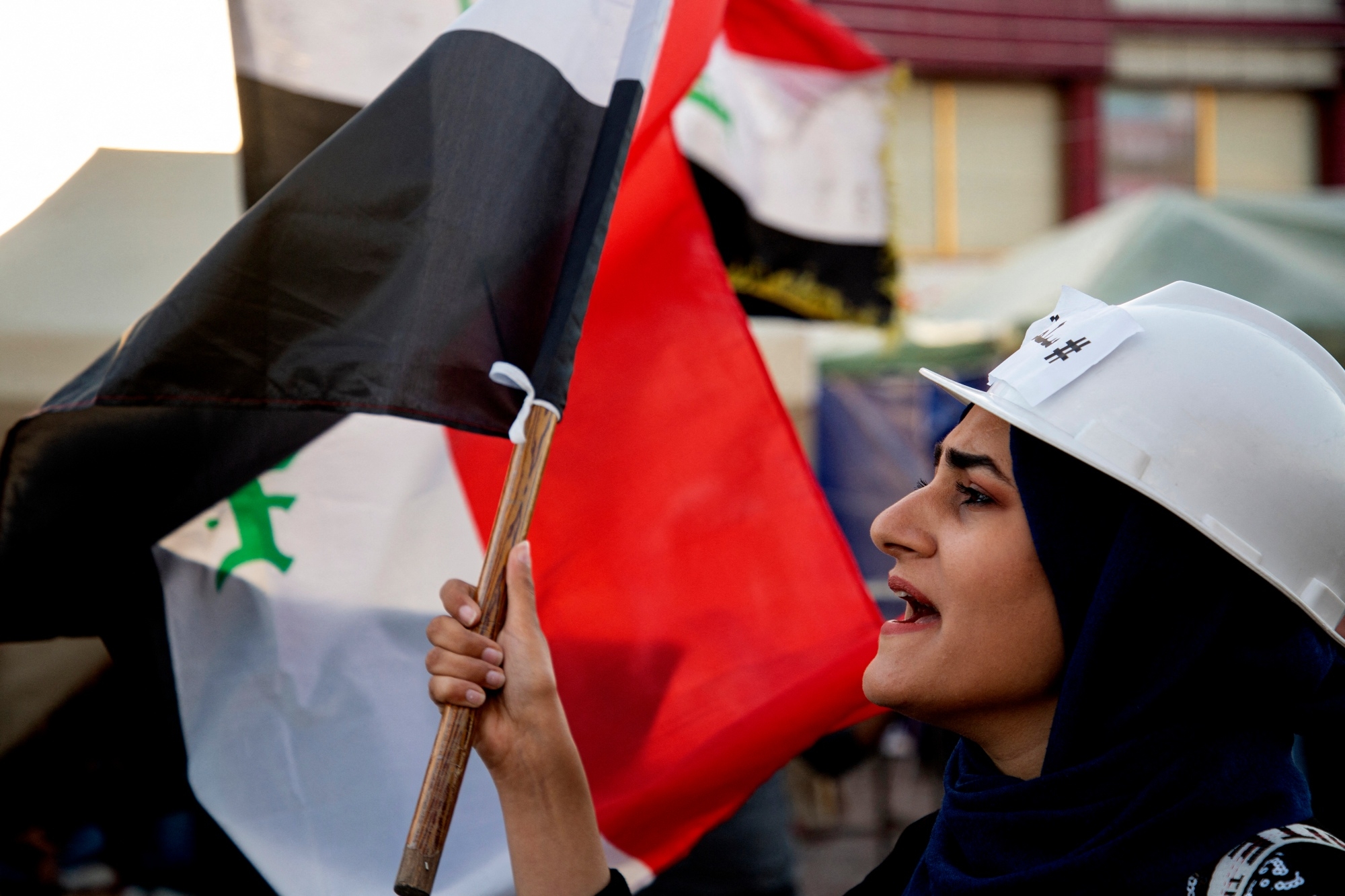
Iraqi security forces have arrested four individuals in the southern city of Basra suspected of killing anti-government protesters and vocal journalists, two senior security officials told AFP on Sunday.
The arrests would represent the first major step towards justice for some of the nearly 600 Iraqis killed in protest-related violence, including assassinations, since October 2019.
"Intelligence forces arrested four suspected members of a 16-person network responsible for the assassinations in Basra targeting activists," one of the sources said.
The source said Iraqi intelligence was still working to identify the remaining members of the network and would not comment on whether the accused were linked to any political party or paramilitary force.
"They confessed to their crimes, including the killing of Iraqi journalist Ahmad Abdessamad, and a number of other activists," the official said.
Abdessamad, 37, was killed in January 2020 alongside his cameraman, Safaa Ghali, 26, in their home town of Basra.
Abdessamad had been vocally supportive of anti-government rallies that erupted across southern Iraq in October 2019.
Since then, hundreds of young Iraqis have died in protest squares, hit by live bullets or military-grade tear-gas canisters that pierced their skulls or chests.
Security forces were widely blamed for the killings, though Iraq's government has repeatedly denied its forces shot at protesters.
Others were gunned down in what appeared to be targeted killings, including scholar and government adviser Hisham al-Hashemi, shot outside his home last July.
Even as the protests quietened down, the violence continued, with an activist shot dead in Baghdad in December 2020 and others kidnapped and beaten earlier this month.
Prime Minister Mustafa al-Kadhimi has repeatedly pledged to hold killers to account, but there have been no public arrests or trials.
In December, eight human rights organisations said the Iraqi government was "failing" in its obligation to bring those individuals to justice, thereby "entrenching decades of impunity".
Top government advisers have admitted to AFP that their intelligence investigations found the perpetrators of the bloodshed hailed from powerful paramilitary groups.
"We know who killed Hisham [al-Hashemi], for example, but we cannot go after them," one adviser said.
Hisham al-Mozani, an activist with the Iraqi al-Amal Association rights group, told Middle East Eye in May last year that protesters were meanwhile detained on serious charges apparently unrelated to protesting and often spuriously linked to the crimes in question.
"All the prisoners, they do not go to the court because they are protesters - they give them another charge like burning a hospital or shooting a police officer," he told Middle East Eye, speaking by phone from Baghdad.
"When we go to the court or go to the police officers or go to the jails, they say 'we don't have protesters in the jail' because all the cases are not designated protest cases."
He said that many people had been kept in jail under anti-terrorism legislation, which mandates harsh penalties for a wide range of offences.
Meanwhile, nearly a year-and-a-half since the beginning of Iraq's protest movement, demonstrators' demands remain largely unmet.
Middle East Eye delivers independent and unrivalled coverage and analysis of the Middle East, North Africa and beyond. To learn more about republishing this content and the associated fees, please fill out this form. More about MEE can be found here.


